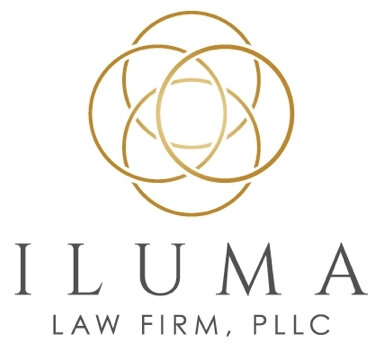Trademarks 101
What is a trademark?
A trademark is a word, combination of words, symbol, or combination of these that identifies your company as the source of your goods or services.
For example, if you are providing coaching services, and you trademarked your business name, that name would identify your business as the sole source of your coaching services, and your company would be the only entity that could use that name or a similar name to provide coaching services. This also applies to any course names you trademark.
You can also trademark logos and slogans. Some examples of the most famous trademarks are:
Nike’s swish and slogan “Just do it”
McDonald’s golden arches
Starbucks
What is a trademark search?
A trademark search is a search for related marks that are similar to the mark you want to trademark.
If there is a similar mark that could potentially confuse consumers as to the source of the product, it is likely that you will not be able to trademark your brand. This is called a “likelihood of confusion.” Marks that could cause a likelihood of confusion are marks that are spelled, sound, or look similar and are in use by a related company. However, you can generally trademark a mark that is similar to a non-related company’s mark as long as it won’t cause a likelihood of confusion as to the source of the product.
Because businesses that are already using marks in commerce can have trademark protection without registering their marks, you should also search non-registered marks when conducting your trademark search.
Even if you don’t want to register your trademark, it is important to make sure there are no similar marks in use before doing business under that mark because you could be sued for trademark infringement if you use a mark that is similar to one already in use by a related company.
When should you conduct a trademark search?
Ideally, you should conduct a trademark search when you are coming up with your business name, course name, or slogan. That way, you’ll avoid the risk of being sued by another company who used the name first.
You’ll also avoid the need to rebrand in the event someone else already owns the trademark and sues you or sends you a cease and desist letter.
Conducting a trademark search is also important prior to registering your trademark so you know whether the mark is available. If your mark or a similar mark is in use by a similar company, your registration will likely be denied.
Why should you trademark your brand?
Brand Protection: A registered trademark gives you the exclusive right to use your trademark in your area of business nationwide and allows you to sue others with similar companies from using a similar trademark. Trademarking early also avoids the risk of having to rebrand after finding out someone else already had the rights to your brand or course name.
Brand Recognition: Having the exclusive right to use your brand builds brand loyalty. Protection from allowing others to use similar names also builds brand loyalty as customers won’t be confused by your competitors.
Business Assets: Trademarks are assets which get more valuable as your business grows.
What is the difference between a common law trademark and a registered trademark?
A “common law trademark” has less protection than a “registered trademark.” Common law trademark protection will generally be limited to the geographic area where you conduct business. You have common law trademark protection if your company is the first company providing the same or similar goods/services as your company using your name/symbol or a similar name/symbol. If you do that, you will have trademark protection just by using your name or symbol in your business. This occurs when you don’t register your trademark but use it in commerce.
On the other hand, if you formally register for a federal trademark, and it is approved, it will provide nationwide protection. That way, someone in another state who has a similar company to yours can’t freeload off your hard-earned goodwill and use a similar name.
Disclaimer: This information is provided for general information purposes only and should not be construed as legal advice with respect to any matter. This information is not intended to be an exhaustive list of the topics discussed. It does not create an attorney-client relationship and should not be used as a substitute for legal advice in any specific situation.
© 2021 Iluma Law Firm, PLLC. All rights reserved.

